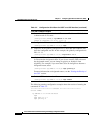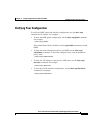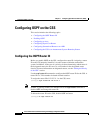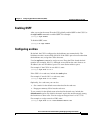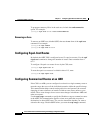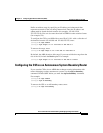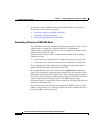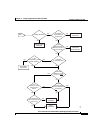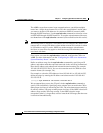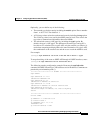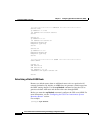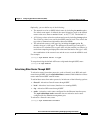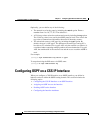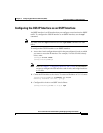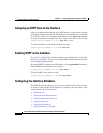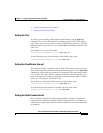
Chapter 3 Configuring Open Shortest Path First (OSPF)
Configuring OSPF on the CSS
3-18
Cisco Content Services Switch Routing and Bridging Configuration Guide
OL-4580-01
The ASBR can perform external route summarization to consolidate multiple
routes into a single advertisement. For a CSS, this consolidation is useful when
you want to advertise VIP addresses for content as OSPF AS external (ASE)
through all OSPF interfaces. Use the ospf advertise command to advertise a route
as OSPF ASE through all OSPF interfaces. To stop the advertisement of the route,
use the no form of the ospf advertise command (as described later in this section).
Note When using OSPF to advertise a VIP address, do not configure this address on a
content rule as a single VIP address when another content rule includes it within
its VIP address range. If you do, OSPF may make erroneous advertisement
decisions or some rules may appear to have the wrong VIP redundancy state
associated with them.
First, before you enter the ospf advertise command, configure the CSS as an
ASBR. For more information, see the “Configuring the CSS as an Autonomous
System Boundary Router” section.
Define an address range for the ospf advertise command by specifying an IP
address and subnet mask that represents networks in the area being summarized.
Enter the IP address and subnet mask in dotted-decimal notation (for example,
192.168.128.0 255.255.224.0). You can also enter the mask in CIDR bit-count
notation format (for example, /24).
For example, to advertise VIP addresses from 192.168.44.0 to 192.168.44.255,
define the range by entering the IP address and subnet mask of 192.168.44.0
255.255.255.0:
(config)# ospf advertise 192.168.44.0 255.255.255.0
We recommend that you use the /32 prefix in the ospf advertise command to
specify VIPs individually. Specifying entire subnets does not enable the CSS to
make proper decisions on advertising the VIPs. The advertisement must match or
fit entirely within a VIP range to make proper decisions. If the OSPF advertise IP
address range and the VIP range overlap, or the OSPF advertise range
encapsulates (that is, is larger than) or doesn’t match the VIP range, then the route
is advertised unconditionally.



